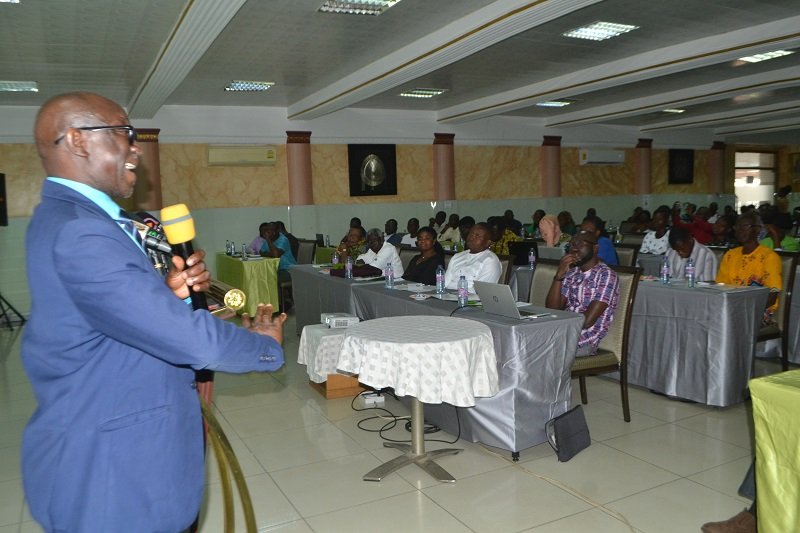The Assistant Commissioner of Research and Policy of the Ghana Revenue Authority (GRA), Dr Alex Kombat, has urged the public to honour their tax obligations to help accelerate the country’s development.
According to him, individuals paying their respective taxes would enable the government to raise enough funds to undertake its developmental projects as it was running a deficit budget.
Speaking at the budget forum in Accra on Friday, Dr Kombat said the country could not raise enough tax revenue, and therefore, the government had to borrow to finance the budget and other national development needs.
“We must pay our taxes so that government can raise the needed revenue for national development,” he said.
Dr Kombat said measures were being put in place to boost tax revenue aiming for an 18-20 per cent tax-to-Gross Domestic Product ratio by 2027 from 14 per cent.
Some of the measures, he mentioned included automation and E-Invoicing, where payment shifts from manual to digital taxation, making cash payments obsolete and replacing manual VAT invoicing with electronic systems, respectively.
The forum, organised by SEND Ghana, a civil society organisation, and funded by the United Nations Children’s Fund (UNICEF) and Oxfam, was to collate the inputs of citizens in the 2025 National Budget and Economic Policy.
Dr Kombat said “Without taxes, government cannot meet its obligations.”
He, therefore, appealed for a collaborative efforts saying “revenue mobilisation requires total collaboration with all relevant stakeholders.”
The Country Director of SEND Ghana, Ms Harriet Nuamah Agyemang, said the forum was to provide the opportunity for the citizenry to make inputs and the needs of their community to the national budget.
She also added that the citizens’ budget would be presented to the sector ministries, which would influence the budget planning processes.
Ms Agyemang said that, though not all the inputs solicited from the citizens over the years were considered, some of them reflected in previous budgets.
This, she said, should serve as a motivation for advocates to continue pushing for citizen participation in the budget and also thanked all the stakeholders for their participation.
The Programmes Officer, SEND Ghana, Nana Kwesi Barning Ackah, stated that the organisation was working tirelessly to ensure that the needs of vulnerable groups were reflected in the national budget.
“The national budget is a policy statement of government basically saying this is what government is to do. So if we want the government to do something for the citizenry, it’s important that whatever government comes out with represents what citizens wants,” he explained.
The participants applauded SEND Ghana for providing them the platform to share their views on the national budget and called for more of such platforms to encourage citizens’ participation in the decision-making process.
BY CYNTHIA ASAMPANA

